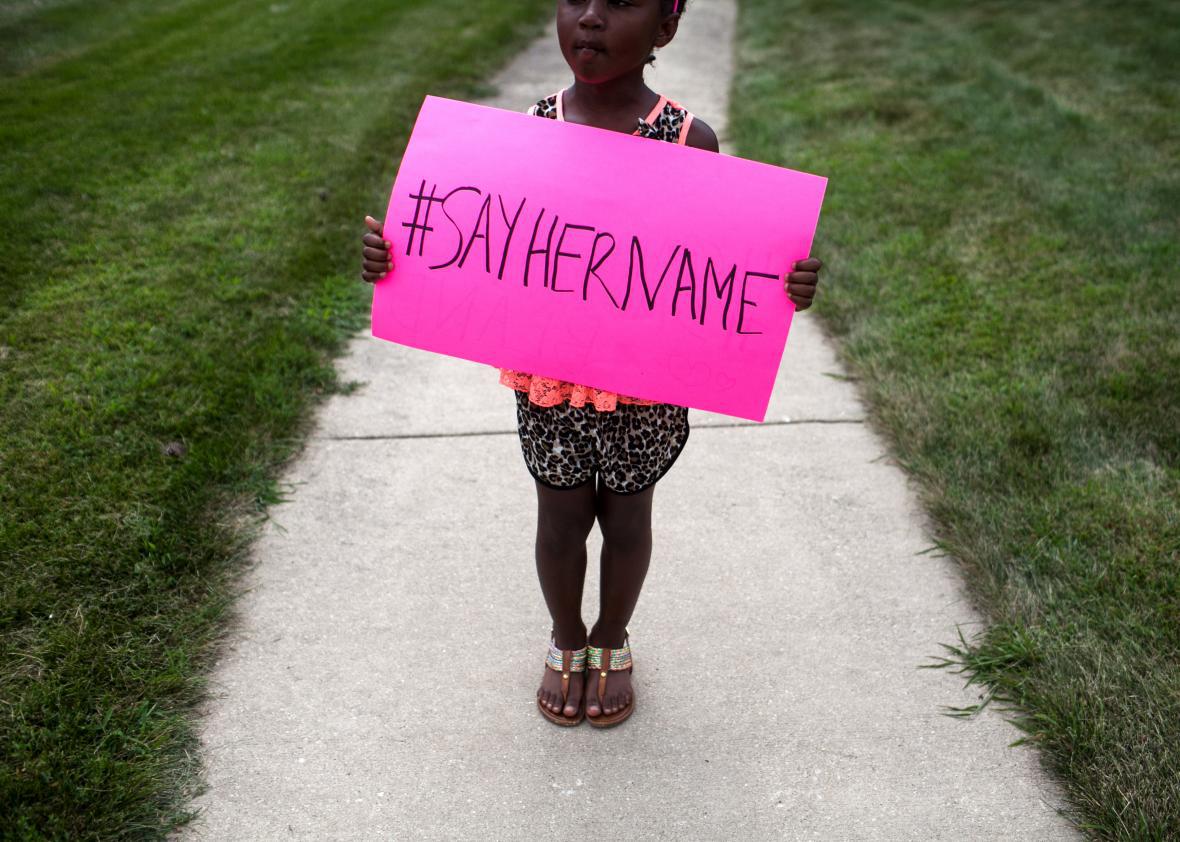In July 2015, the death of Sandra Bland became a central flashpoint in the national debate over race and law enforcement. Bland was pulled over by a Texas state trooper because she didn’t signal a lane change. She was screamed at and threatened with a Taser because she refused to put out her cigarette. Because she couldn’t make bail, she was confined to a Waller County, Texas, jail cell for three days—an experience that evidently caused her so much distress that she hung herself in her cell.
Bland’s death painfully laid bare the potential consequences of petty, hostile policing and arbitrary incarceration. On Thursday, Bland family lawyer Cannon Lambert told a local ABC News affiliate in Texas that the family had settled ITS civil suit against Waller County for $1.9 million. But the money was just one part of the settlement: As Lambert explained to the New York Times, the agreement with the county also calls for a number of procedural reforms to law enforcement practice. In particular, according to Lambert, the agreement requires the county jail to use electronic sensors to check on detainees, and to employ a nurse or emergency medical technician during all shifts. Furthermore, Lambert told the Times, the Waller County judge, Carbett J. Duhon III—who serves as the county’s chief executive officer—“has agreed to push for more funding to improve booking, training and other jail measures through legislation named for Ms. Bland.” Finally, according to the Houston Chronicle, the Department of Public Safety “has agreed to provide de-escalation training for all current and former troopers statewide.”
It’s important to note that this agreement—which stems from a federal lawsuit filed by Bland’s mother, Geneva Reed-Veal, alleging that Bland should never have been detained and was not properly cared for while in custody—has not been finalized yet: According to the Houston Chronicle, it still has to be approved by state officials and Waller County Commissioners. Even so, it’s worth emphasizing just how unusual the nonfinancial aspects of the settlement agreement are. While police departments around the country routinely provide massive payouts to plaintiffs who have sued over misconduct or wrongful death, it is pretty much unheard of for agreements to force policy change.
“In my experience, that’s unique,” said Jeffrey Neslund, a lawyer who negotiated the $5 million settlement between the city of Chicago and the family of Laquan McDonald, the teenager whose death at the hands of a police officer led to the resignation of the Chicago Police superintendent and the county’s top prosecutor. Neslund went on: “There were no conditions in our settlement agreement to change training or, for instance, to make sure officers have the audio on their bodycams turned on. Typically there aren’t conditions like that.”
It’s unclear at this point how the provisions in the Bland settlement would be enforced, and whether the part about procuring more money for training is an ironclad requirement or something closer to a suggestion.
“I’m very intrigued by this. It’s a creative response,” said Kami Chavis, a professor at the Wake Forest University School of Law and director of the criminal justice program there. “But we want there to be some enforceability and some accountability with regard to the improvements. … If the agreement is breached, what will the penalties be?”
Lambert did not immediately respond to a request for comment.
